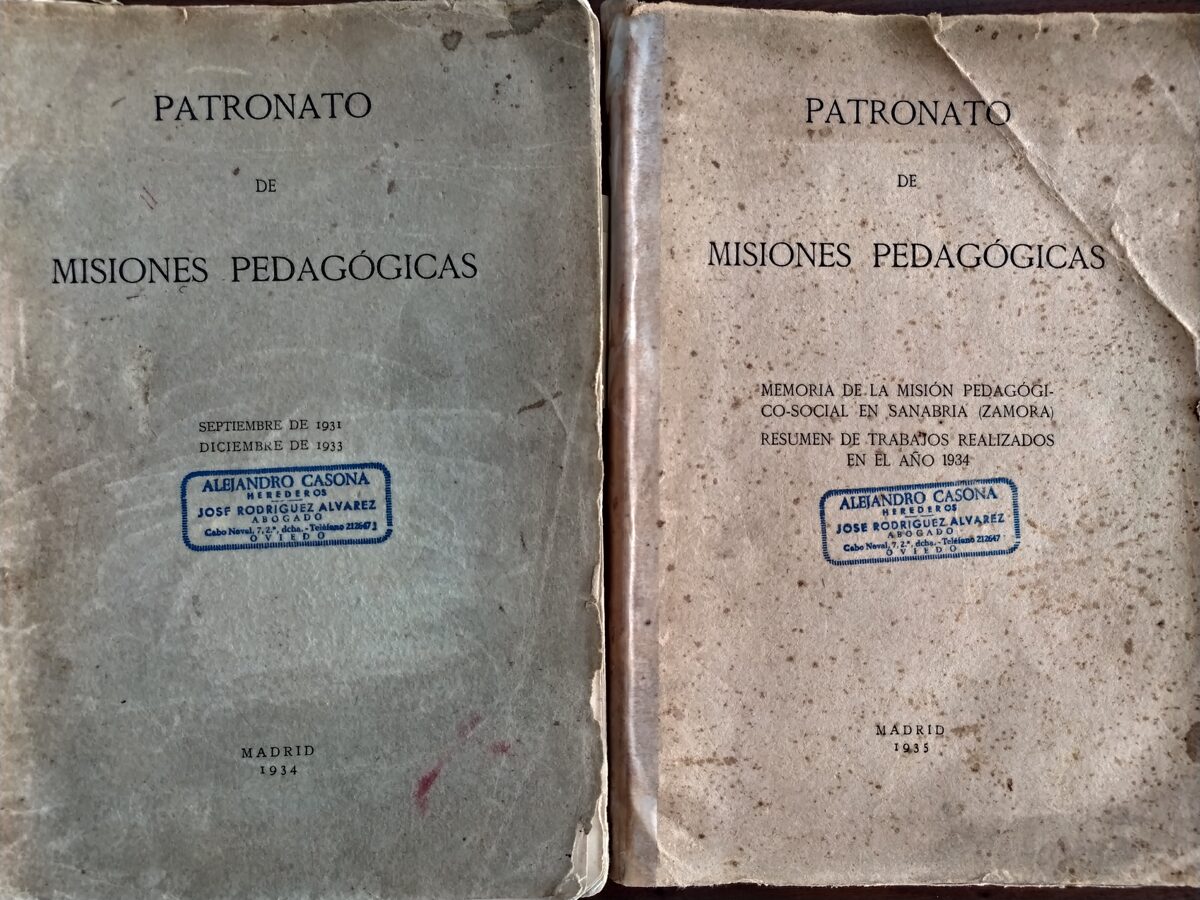The Missions in Besullo
After his appointment in 1931 as Director of the People's Theater commissioned by Manuel Bartolomé Cossío, president of the Board of the Pedagogical Missions, Casona would embark on an unlikely crusade to bring culture to rural Spain, taking the chance to bring his homeland closer to opportunity. During three consecutive summers the Missions, with several members of Casa'l Churro's family among its members, would visit Besullo and its surroundings, carrying out all kinds of activities.

Report of the Board of Trustees of Pedagogical Missions for the period 1931-1934
1932, performing from August 13 to 21. The expedition was formed by Don Alejandro Rodríguez, Inspector of First Education in Madrid; Doña Matutina Rodríguez, doctor in Medicine; Teresa Rodríguez, Inspector of First Education of León; Don José Fernández, director of the Graduate School of Pravia; Don Gabino Rodríguez, director of Graduada in Oviedo; Don José Llanas, national teacher of Posada de Besullo, and Don José Rodríguez, national teacher of Molledo (Siero). It developed almost without interruption in Besullo, moving one day to Cerecedo, although there was daily attendance of people from all the villages of the parish: Posada, Trones, Noceda, Otriello, Irrondo, Iboyo, El Pomar and Las Montañas. There was a very favorable prior arrangement for the Mission, given that almost all the participants were from the area.
Apart from the missions themselves, the Board carried out a number of other activities, such as the creation of libraries. In this respect, the parish of Besullo would again benefit, with the creation of up to three, located in Besullo himself, Irrondo, Posada, in the period 1932-1933. They would be joined by six others in their nearby
surroundings (Las Defradas, Faedo, Las Montañas, Selces-Forniellas, Tarallé and Trones).
The activity of the Missions also resulted in the arrival of film screenings. Besullo would enjoy 52 films on the most diverse issues (agricultural, geographical, Natural Sciences, health, comedies...), making it nationally, since no other Spanish locality had a greater number of sessions in the first biennium of activity of the Board. In 1934, 16 more films would be joined in 1934.
Besullo would also enjoy the Music Service, with the presence of a gramophone and a collection of records, which would include universal and Spanish classics, Gregorian and regional songs. The good reception is reflected in the "Memory of the Board of Trustees of Pedagogical Missions (September 1931-December 1933)", published in 1934: "I most gladly realize the great interest of the services provided by this gramophone to the school and neighborhood of these towns. It enlivened the festivals of the Book and the Race, gave an extraordinary show on Christmas Eve, began the courses of adults and daytime, took to the schools of Posada, Trones and Araniego, gives weekly sessions to children gathered in this school, not counting other sessions in Geography class to make differences between the different Spanish regions , for their typical music and songs. They always prefer regional songs, and when they are from the country it excites the children's class that bursts into Viva la República!. They also ask for Russian music".
The culturizing spirit of the Pedagogical Missions would continue with the appearance of the Circle of Culture and Recreation of Besullo, whose founding act would be signed on November 4, 1935.
This association was born in order to "initiate as many acts of a cultural and educational nature that can bring some benefit to its partners and to the culture of the people in general" and specified that "it will not allow political or religious matters to be dealt with within it.".
The Circle was open to both men and women, and had a permanent library. The entrance fee was five pesetas and there was a monthly fee of one peseta. The complete article was compiled by Xuacu López Álvarez in Tous pa Tous.
The link of our house with the Circle of Culture and Recreation comes through its first president. Dr. Florentino Hurlé Morán, husband of Teresa Rodríguez, Inspector of Education and sister of Alejandro Casona, had already participated in the Pedagogical Missions in the area in 1933.